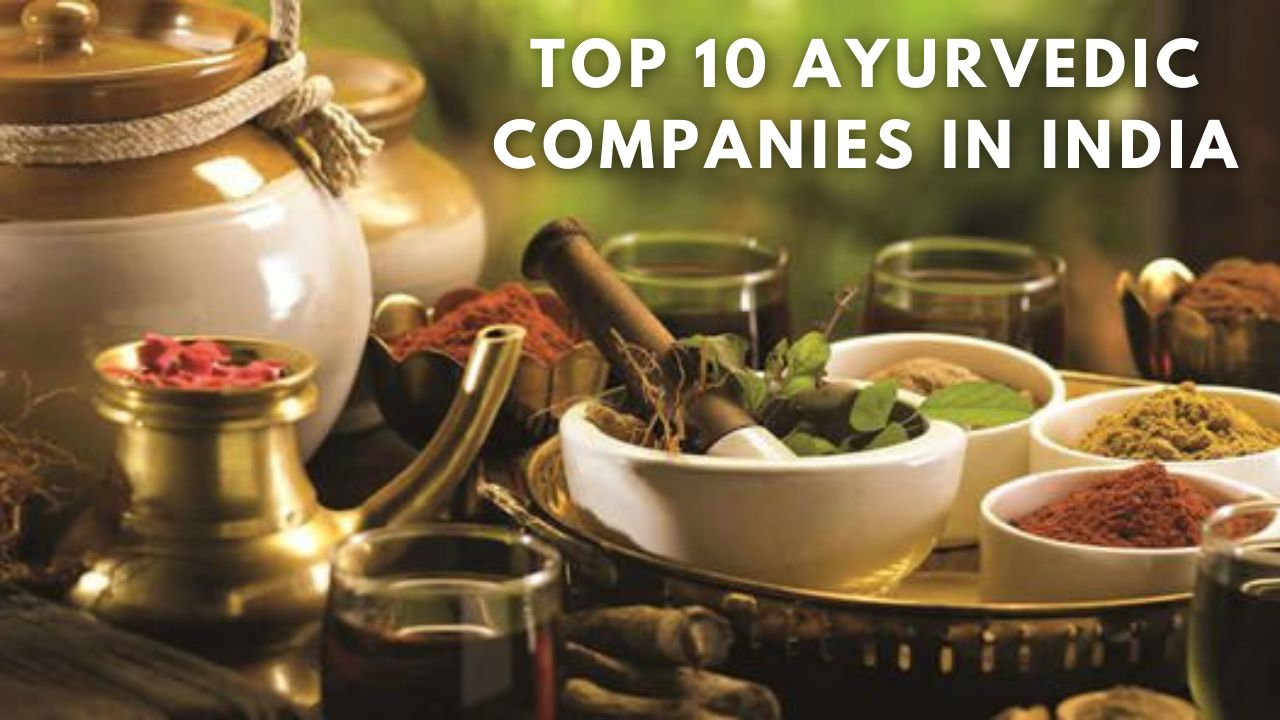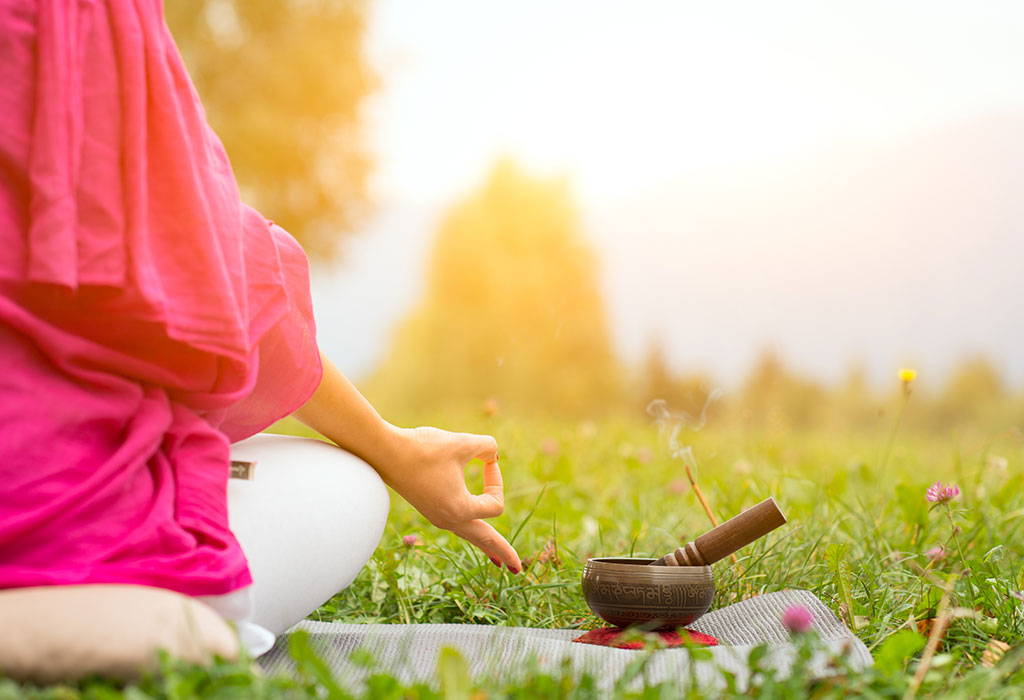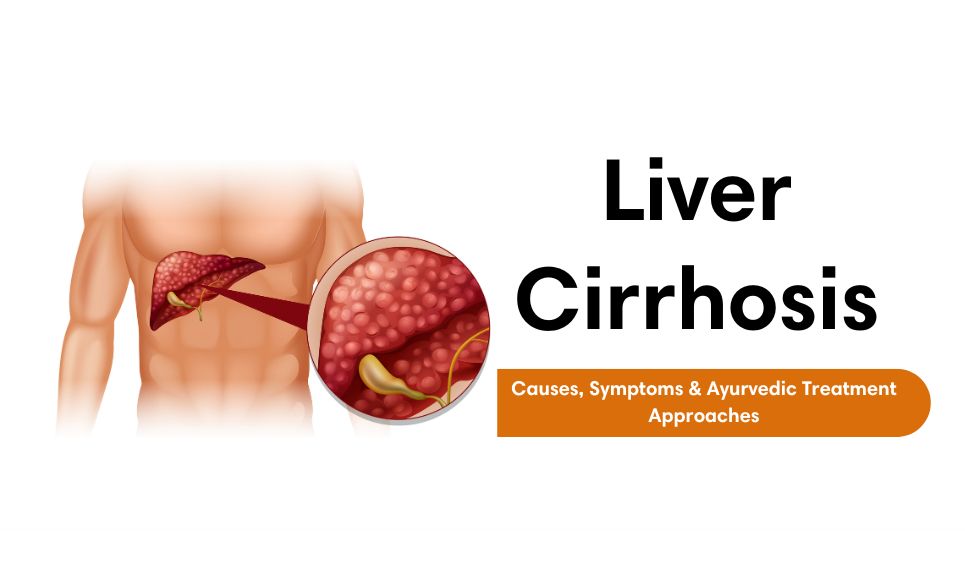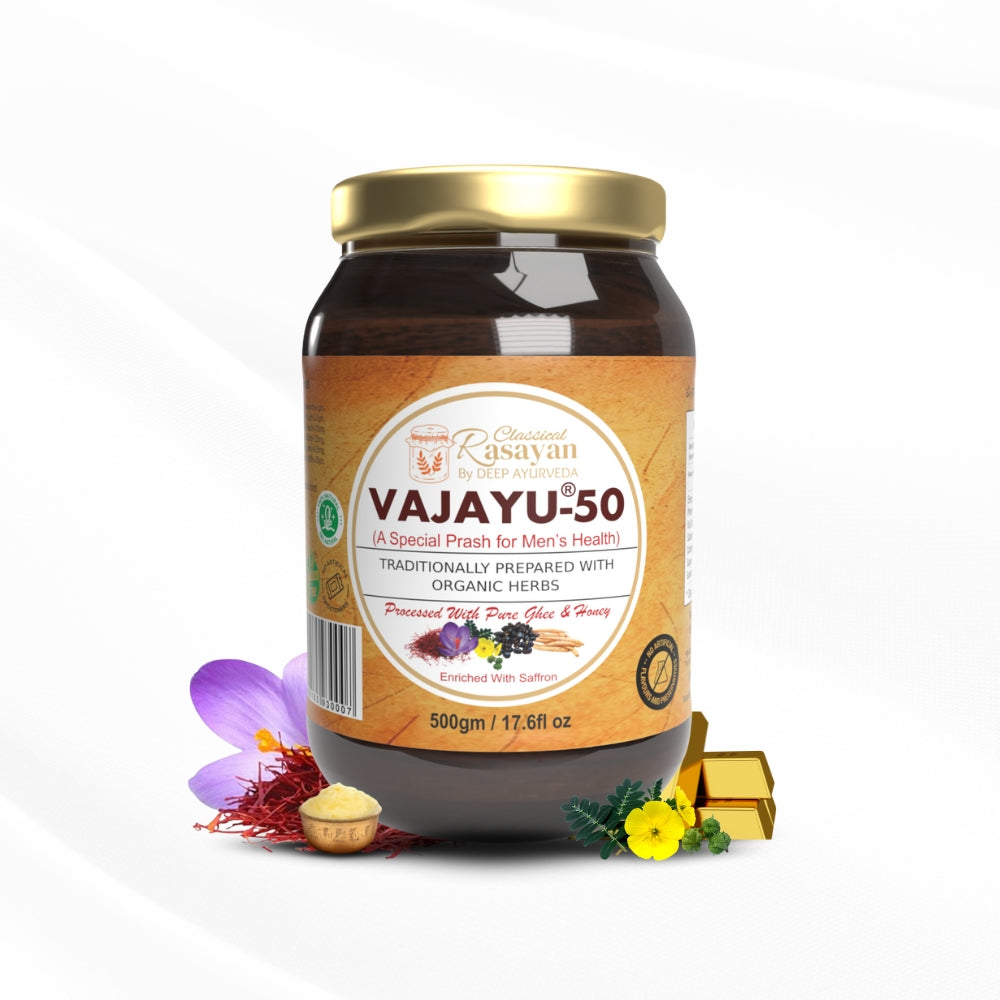समाचार
Top 10 Ayurvedic Companies in India
India, the land of Ayurveda, has seen a powerful resurgence of natural health and wellness. With increasing awareness about herbal healing, the Ayurvedic industry is booming—and for good reason. People are now shifting from chemical-based solutions to natural, holistic approaches to healthcare. But with so many brands in the market, which ones truly stand out? Here’s our carefully curated list of the Top 10 Ayurvedic Companies in India that are setting benchmarks in quality, authenticity, and innovation. 1. Deep Ayurveda – Science of Pure Wellness When it comes to blending classical Ayurvedic wisdom with clinical excellence, Deep Ayurveda is a name that leads the way. Founded with a mission to provide authentic, ethical, and result-oriented Ayurvedic healthcare, Deep Ayurveda has quickly gained trust across India and globally. Star Products: Vajayu 50 Prash – A potent Rasayana formulation for men’s vitality and strength. Naripanch Prash – Designed to balance female hormones, manage PCOD/PCOS, and regulate menstrual health. Makoy Capsules – Highly effective in managing liver disorders, especially fatty liver and jaundice. Livclear Ayurvedic Syrup – A liver detox and support formula loved by thousands. Why Deep Ayurveda? GMP-certified manufacturing units Proprietary & classical formulations ISO and organic certified Online and offline consultations with expert Ayurvedic doctors Available PAN India and in over 15 countries With its holistic product range and deep-rooted clinical expertise, Deep Ayurveda truly deserves the No. 1 spot in our list of top Ayurvedic companies in India. 2. Dabur India Ltd. Dabur is one of India’s oldest and most recognized Ayurvedic brands, known for household staples like Chyawanprash, Hajmola, and Dabur Honey. With over a century of legacy, Dabur combines traditional medicine with modern technology. Popular Products: Dabur Chyawanprash Dabur Honitus Dabur Triphala Churna Dabur is a trusted name for Ayurvedic FMCG and healthcare products across India and abroad. 3. Patanjali Ayurved Co-founded by Yoga guru Baba Ramdev and Acharya Balkrishna, Patanjali Ayurved disrupted the FMCG market with its Ayurvedic and Swadeshi approach. It offers everything from health supplements to grocery and cosmetics. Notable Products: Patanjali Divya Coronil Kit Patanjali Ashwagandha Patanjali Giloy Ghanvati Patanjali is a favorite among budget-conscious consumers looking for Ayurvedic alternatives to modern pharmaceuticals. 4. Himalaya Wellness With over 90 years in the industry, Himalaya is known for its clinically-tested, herbal formulations across personal care, baby care, and healthcare. Popular Products: Liv.52 for liver support Himalaya Septilin for immunity Himalaya Neem Face Wash Their scientific approach and global reach make them a top-tier Ayurvedic company in India. 5. Zandu (Emami Ltd.) Zandu, now a part of Emami Group, is another heritage brand that has evolved into a major Ayurvedic player. Known for its classical formulations, Zandu is a household name for Ayurvedic pain relief and digestive health. Flagship Products: Zandu Balm Zandu Pancharishta Zandu Kesari Jivan The brand merges Ayurveda with modern packaging and user-friendly formats. 6. Baidyanath Founded in 1917, Baidyanath is synonymous with classical Ayurveda. It offers a vast portfolio of more than 700 Ayurvedic medicines and proprietary blends. Bestselling Products: Baidyanath Chyawanprash Special Baidyanath Ashwagandhadi Churna Baidyanath Shankhpushpi Syrup If you’re looking for traditional Ayurvedic formulations, Baidyanath is a trusted name. 7. Charak Pharma With a strong focus on clinical research and physician-backed products, Charak Pharma is popular among Ayurvedic practitioners. The company also exports its medicines to over 35 countries. Notable Products: Charak Livomyn Charak M2 Tone Charak Addyzoa Their scientific rigor and practitioner focus earn them a place in the top 10. 8. Kerala Ayurveda Ltd. Rooted in the rich traditions of Kerala’s Panchakarma, Kerala Ayurveda Ltd. provides authentic therapies, supplements, and wellness treatments. They also run Ayurvedic clinics and educational institutions. Signature Products: Kerala Ayurveda Triphala Tablets Liposem Capsules for cholesterol Dasamoolarishtam A great choice for those looking to experience Kerala’s traditional approach to wellness. 9. Sri Sri Tattva An initiative of Art of Living Foundation, Sri Sri Tattva blends spiritual wellness with Ayurvedic healing. Their product range includes classical formulations, teas, and FMCG products. Highlighted Products: Sri Sri Amruth Tablets (Giloy) Ojasvita health drink Tulasi Arka They focus on holistic living and community well-being through Ayurveda. 10. Ayurveda Rasashala (Tilak Ayurveda Mahavidyalaya, Pune) A lesser-known gem, Ayurveda Rasashala manufactures authentic Ayurvedic formulations under the supervision of Ayurvedic scholars. It is an initiative of the famous Tilak Ayurveda College. Unique Offerings: Rasayan Kalpa Suvarna Vasant Malti Ras Classical Churnas and Avalehas Their medicines are widely trusted by Ayurvedic Vaidyas for their purity and adherence to classical texts. Final Thoughts India is witnessing a renaissance of Ayurveda, and the brands mentioned above are leading the charge. While legacy brands like Dabur and Baidyanath have held their ground for decades, new-age leaders like Deep Ayurveda are setting fresh benchmarks by combining clinical expertise, ethical sourcing, and classical formulations with modern accessibility. So, whether you’re looking for natural liver care, hormonal balance, immune support, or a complete wellness transformation—Ayurveda has it all. Pro Tip: Always consult an Ayurvedic practitioner before starting any herbal formulation, especially if you have a pre-existing condition or are taking modern medications.
Read moreसमाचार
Suwarnprashan Sanskar in Ayurveda: Strengthening Mind and Body in Kids
Childhood is considered the foundation stage of human life, where various aspects of development—cognitive, emotional, physical, social, and moral—take shape. During this period, the brain develops rapidly, habits and behaviors are formed, and personality begins to take root. Proper nutrition, education, emotional support, and a nurturing environment play a vital role in shaping a child's future. Today’s parents are actively searching for ways to enhance their child’s immunity and overall development. Suwarnprashan, an ancient Ayurvedic formulation mentioned in classical texts, is one of the best natural remedies to boost immunity and support the overall growth and development of children. What is Suwarnprashan Suwarnprashan is specially prepared formulation containing purified gold (Swarna Bhasma) along with honey, ghee, and other herbal Medhya ingredients like Brahmi, Vacha, and Shankhpushpi. Ayurveda text Reference of SUWARNPRASHAN and its Importance "स्वर्णं च रसायनं च बालस्य बुद्धिमेधाकरकम्। आयुष्यम् मङ्गलं पुण्यं वृष्यं ग्रहापहम्॥" (काश्यप संहिता, लेहनाध्याय) This means: Suwarna (gold) acts as a Rasayana (rejuvenator) It enhances intellect (Medha), memory, and immunity It provides longevity, strength, and protects from infections and negative influences "स्वर्णप्राशनं हि एतत् मेधाग्निबलवर्धनम् | आयुष्यं मङ्गलं पुण्यं वृष्यं ग्रहापहम् || बालानां च ग्रह-रोगादि नाशनं मेधाग्निबलवर्धनम् || Kashyap Samhita – Sutrasthana 18/4-5 This verse describes the profound benefits of Suvarnaprashan in children—boosting intellect (medha), digestive/metabolic fire (agni), strength (bala), longevity (āyuṣya), and immunity against graha-related disorders (interpreted as both microbial and metaphysical influences in Ayurveda). "मासात् परं मेधावी व्याधिभिर्न च दृश्यते | षण्मासात् शब्दस्वरज्ञानी भवति ||" Kashyap Samhita – Sutrasthana 18/6 If administered regularly for one month, it makes the child intelligent and disease-free. With regular use for six months, the child becomes shrutdhar(means A child who can retain and recall everything he/she hears – this is one of the highest praises for intellect and memory in Ayurveda). Benefits of Suwarnprashan 1. 🧠 Enhances Memory and Intelligence The medhya (brain-tonic) herbs in Suwarnprashan help improve concentration, grasping power, and learning ability. 2. 🛡️ Boosts Immunity Suwarnprashan strengthens the immune system and builds resistance against recurrent infections and seasonal illnesses. 3. 💪 Promotes Physical Strength and Growth It supports healthy growth, enhances digestion, and improves metabolic activities. 4. 😌 Improves Behavior and Emotional Stability Regular intake is said to promote calmness and reduce hyperactivity, irritability, and anxiety in children. 5. 🌿 Safe and Natural Being a herbal, natural, and time-tested preparation, Suwarnprashan has no known side effects when given under proper guidance. Who Should Give Suwarnprashan to Their Child? Children who fall ill frequently Kids with low concentration or memory problems Children showing signs of poor growth or low appetite For overall health maintenance in all children When and How to Give Suwarnprashan? Ideal Age: From birth up to 16 years Best Time: Pushya Nakshatra, a highly auspicious day that comes once every 27 days (as per Vedic astrology).The effect of suwarnprashan increases on pushya nakshatra. Dosage: Depends on age and is best decided by an Ayurvedic physician. Typically, a few drops to 1 ml is administered orally. Conclusion Suwarnprashan is a golden gift from Ayurveda for nurturing your child’s health, intellect, and immunity naturally. As modern parents turn back to nature for holistic growth, Suwarnprashan offers a powerful, safe, and time-honored solution. Administered at the right age and time, it can lay the foundation of a healthy and intelligent future generation.
Read moreCalcare: Natural Supplement for Bone Strength and Vitamin D Support
In today’s era, Vitamin D deficiency has become increasingly common, especially among women, leading many to rely on supplements, sachets, or even injections. However, Ayurveda offers time-tested, natural solutions for bone health and calcium support—without the side effects associated with chemical-based supplements. Deep Ayurveda has formulated a unique natural calcium supplement, Calcare, which combines potent Ayurvedic herbs and minerals to support bone strength, improve bone density, and maintain overall skeletal health. Safe for people of all age groups, this natural formulation works holistically to nourish the bones while also supporting better calcium absorption, making it a reliable choice for long-term use. What is Calcare? Calcare is a herbal-mineral Ayurvedic supplement designed to naturally support Bone mineral densityCalcium absorptionVitamin D levelsJoint mobility and strength It combines plant-based calcium sources and herbs known to improve bone metabolism, making it safe for long-term use and free from the side effects of chemical-based calcium tablets. Key Ingredients in Calcare 1. Praval Pishti Praval Pishti, a classical Ayurvedic formulation made from purified coral calcium, is a rich natural source of bioavailable calcium. In Ayurveda, it is highly valued for strengthening bones, supporting Asthi Dhatu (bone tissue), and balancing Pitta dosha. It helps in improving bone density naturally and is often used in conditions like osteoporosis and osteopenia. 2. Mukta Shukti Mukta Shukti Pishti, prepared from purified pearl oyster shell, is a potent natural source of calcium and minerals in Ayurveda. Traditionally, it is used to strengthen Asthi Dhatu (bone tissue), support joint health, and manage conditions like osteoporosis and calcium deficiency. It also helps balance Pitta dosha and improves digestion, aiding better mineral absorption. From a modern perspective, Mukta Shukti contains highly bioavailable calcium carbonate, which contributes to increasing bone mineral density. 3. Hadjod Hadjod (Cissus quadrangularis), known in Ayurveda as Asthisamhari, is a powerful herb traditionally used to promote bone healing and strength. It is well-known for accelerating fracture healing, nourishing Asthi Dhatu, and improving bone density. Ayurvedic texts recommend Hadjod for managing conditions like osteoporosis and weak bones due to its Vata-pacifying and bone-regenerative properties. From a modern scientific perspective, Hadjod contains rich amounts of calcium, phosphorus, and phytoestrogens, which stimulate osteoblast (bone-forming cell) activity and reduce bone loss. 4. Laksha Laksha (Laccifer lacca), a natural resin obtained from the secretion of insects on host trees, is highly valued in Ayurveda for promoting bone healing and strength. Traditionally used in formulations for fractures and osteoporosis, Laksha helps nourish Asthi Dhatu, supports quick bone regeneration, and pacifies Vata dosha, which is often aggravated in bone-related disorders. From a modern perspective, Laksha has been found to contain compounds that aid in collagen formation and support the bone remodeling process. 5. Arjun Arjuna (Terminalia arjuna), though primarily known for its cardioprotective effects, also plays a supportive role in bone health according to Ayurveda. It helps strengthen Asthi Dhatu (bone tissue), reduces inflammation, and promotes natural healing, making it beneficial in conditions like osteoporosis or bone injuries. Its astringent and cooling properties help balance Pitta and Kapha, supporting tissue regeneration. From a modern perspective, Arjuna is rich in antioxidants, flavonoids, and minerals like calcium and magnesium, which contribute to improved bone metabolism. Benefits of Calcare Capsule 1. Bone density and strength 2. Cartilage Regeneration 3. Osteoporosis 4. Osteoarthritis 5. Natural Calcium Supplement 6. Bone or joint fractures 7. Brittle Nails 8. Hair fall due to calcium deficiency 9. for gaining height in children 10. Any kind of spondylosis or disc bulge Why Choose Calcare Over Conventional Vitamin D Supplements? 1. Natural Source of Calcium & Minerals 2. No Side Effects 3. Safe for All Age Groups 4. used higher concentrated and standardized herbal extracts 5. formulated by qualified and experienced Ayurveda Doctor 6. No added synthetic colours,chemicals and artificial flavouring agents 7. GMP certified and USFDA registered manufacturing units 8. 100% vegetarian capsule 9. Unlike synthetic Vitamin D supplements, which may lead to kidney stone formation with long-term use, Calcare is a natural formulation that supports bone health without increasing the risk of renal stones Dosage of Calcare capsule 1 to 2 capsules twice a day or as directed by physician After meals with warm water or milk Conclusion Make your bones healthy, help your child grow stronger, and support women struggling with Vitamin D deficiency—all with the power of nature. Calcare is a complete Ayurvedic solution for people of all age groups, including the elderly facing Vata-related bone disorders and individuals with weak or brittle bones. Instead of relying on chemical-based supplements, choose Calcare for a safe, effective, and natural approach to improving bone density and strength. Whether you're a parent, a woman dealing with calcium deficiency, or a senior looking for joint and bone support, it's time to start using Calcare—your trusted Ayurvedic companion for lifelong bone health.
Read moreRitucharya in Ayurveda: Seasonal Regimen for Lifelong Wellness
According to Ayurveda, our body is governed by three fundamental energies or Doshas—Vata, Pitta, and Kapha. A state of balance among these Doshas ensures health, while their imbalance becomes the root cause of various diseases. Interestingly, these Doshas do not remain static—they fluctuate with seasonal changes. Each season tends to aggravate a particular Dosha, making the body more vulnerable to related disorders. To maintain harmony and prevent seasonal imbalances, Ayurveda recommends a disciplined seasonal routine known as Ritucharya. Ritucharya provides season-specific dietary, lifestyle, and behavioral guidelines that help in pacifying the aggravated Dosha, thereby keeping the body and mind in sync with nature. What is Ritucharya? According to classical Ayurvedic texts the year is divided into six ritus (seasons)- Basant Ritu(Spring Season),Grishma Ritu(Summer Season),Varsha Ritu(Rainy Season),Sharad Ritu(Autumn Season),Hemant Ritu(Winter Season),Shishir Season(Late Winters).Ritu means Season,Charya means Routine, regimen, conduct, lifestyle hence ritucharya means seasonal routine to maintain the three body doshas in equilibrium is called Ritucharya. Basant Ritucharya (Spring regime)- Kapha dosha is aggravated due to the warmth and liquefaction of accumulated Kapha from winter.If not balanced, it may lead to heaviness, congestion, lethargy, and other respiratory and metabolic issues. Ahara (Diet)-Prefer light, dry, warm, and easily digestible foods like Barley, wheat, old rice, green gram (moong dal),Bitter, pungent, and astringent tastes (tikta, katu, kashaya),Honey (natural Kapha pacifier),Spices like black pepper, ginger, turmeric, cinnamonAvoid:Dairy, cold and oily foods, sweets, and heavy food,Excessive sleeping during the day and overeating Vihara (Lifestyle)-Physical activity is crucial—engage in brisk walks, yoga, or light exercise to balance Kapha.Avoid day sleep, as it further aggravates KaphaExposure to mild sunlight is beneficial.Panchakarma Regular abhyanga (oil massage) followed by udvartana (dry powder massage) helps in Kapha shodhana.Nasya and Dhoompan clears excess Kapha from sinuses.Vamana karma (therapeutic emesis) is the primary Panchakarma indicated in Basant Ritu to eliminate aggravated Kapha. Herbs to be used in Basant Ritu-Trikatu,Tulsi,Vasa,Ginger,Honey "वसन्ते कफवृद्धिर्भवति।तस्मात् कफविनाशनं यत् तत्तत् प्रयोज्यम्।तेन शीतेनाधिकं व्यायामः, रुक्षोष्णलघु आहारः।धूमपानं, अभ्यङ्गमुद्वर्तनं, वमनं, गार्शयामश्च उपयोग्याः॥" — Ashtanga Hridaya, Sutrasthana, Chapter 3 "In Vasanta Ritu (spring), Kapha dosha naturally increases. Therefore, all measures that eliminate or pacify Kapha should be practiced—such as increased exercise, intake of light, dry, and warm foods, medicated smoking (Dhoomapana), oil massage (Abhyanga), dry massage (Udvartana), therapeutic emesis (Vamana), and wearing light clothing. Grishma Ritu (Summer Regime)- This period is characterized by intense heat, dryness, and depletion of body strength due to the dominance of Agni (sun/fire element).Vata is mildly accumulated due to dryness and heat.Pitta is in a balanced state but starts to increase.Kapha is reduced, so there’s usually lightness in the body. Ahara (Diet) –Sweet (madhura), Bitter (tikta), Astringent (kashaya) ras pradhan food should be taken.Water-rich fruits like watermelon, cucumber, muskmelon and Cooling foods like rice, milk, ghee should be consumed.Herbal drinks: sharbat, sattu, sugarcane juice, amla juice, buttermilk, coconut water should be added in diet Avoid:Spicy, sour, salty, fermented, and oily foods,Excessive fried and hot foods,Alcohol, caffeine, and carbonated drinks which increases heat and vaat in the body.Vihara (Lifestyle) –Avoid exertion, physical overactivity, and sun exposure during middayWear light, breathable cotton clothing,Use sandalwood paste, rose water, and fragrant flowers for cooling effect.Sleep during night should be adequate; daytime naps are acceptable in this season Panchakarma-Abhyanga (oil massage) with cooling oils like chandanadi taila or coconut oil. 4.Herbs beneficial in Grishma Ritu-Shatavri,Amla,Yashtimadhu,usheer Varsha Ritucharya (Rainy season Regime)- Varsha Ritu (Rainy Season) is the monsoon period, typically occurring from mid-July to mid-September (Shraavana and Bhadrapada months). During this season, the environment becomes damp and cold, Agni (digestive fire) weakens, and Vata dosha becomes aggravated . Ahara (Diet)-Laghu and easily digestible food like moong dal soup, yusha (light gruels).Use of ghee – pacifies Vata.Sour, salty, and mildly spicy foods are beneficial – pacify Vata.Use old grains like rice and barley.Avoid heavy, oily, cold, and raw foods. Vihara (Lifestyle)Massage with medicated oils like Dhanwantharam tailam or Narayana tailam to pacify vaat dosh.Avoid day sleep, excessive exposure to cold wind, and fasting Panchakarma-Abhyanga (oil massage),Basti. Herbs used-Trikatu, Chitrak, Musta to stimulate digestion. वर्षासु जीर्णान्नपानसेवी लघूष्णस्निग्धाहारः | दिवास्वप्नवर्जितः स्यात् पानं जलस्य चाग्निसंस्कृतस्य ||Ashtanga Hridaya – Sutrasthana (Chapter 3: Ritucharya) In the Varsa Ritu (monsoon season), one should consume easily digestible (jīrṇa) food and drinks,Prefer light (laghu), warm (usna), and unctuous (snigdha) food.Avoid daytime sleep (divasvapna).Drink water that has been boiled and cooled, i.e., processed by fire (agnisaṁskrta jala) to maintain digestive strength and prevent disorders. Sharad Ritucharya(Autumn Season) Sharad Ritu is the autumn season, occurring from mid-September to mid-November (Ashwin & Kartik months). This is the time when Pitta dosha becomes aggravated due to the heat of the sun and the previous accumulation in Varsha Ritu. Hence, Pitta-pacifying diet and lifestyle are recommended during this season. Ahara (Diet) – Pitta-Pacifying Food-Sweet (madhura), bitter (tikta), and astringent (kashaya) taste preferred.Cool, light, and easily digestible food items.Avoid sour, salty, spicy, and oily foods. Vihara (Lifestyle)-Avoid overexposure to sunlight and excessive physical activity.Practice Chandana lepana (applying sandalwood paste) to calm body heat.Night awakening and day sleep should be avoided. Panchakarma-Virechan and Raktmokshan is best recommended in this season to expel aggravated Pitta. Herbs used-Avipattikar churna, Draksha, Haritaki, Amalaki शरदि पित्तं प्रकुप्यति तस्मात् पित्तहरं सेवनम् | तिक्तं शीतं कषायं च लघु स्निग्धं च भोजनम् || Charaka Samhita – Sutrasthana Adhyaya 6 (Ritucharya) In Sharad Ritu, Pitta dosha gets aggravated. Hence, one should follow a Pitta-pacifying regimen, Food with sweet, bitter, and astringent tastes is advised in Sharad Ritu to pacify Pitta.Drinking cool water (not cold), especially boiled and then cooled, is beneficial in Sharad Ritu. Hemant Ritucharya(Winter Regime)- Duration of Hemant ritu is Mid-November to Mid-January (Margashirsha & Pausha Months) Ahara-Heavy, warm, unctuous (snigdha) and nourishing (brimhana) foodsSweet (madhura), sour (amla), and salty (lavana) rasa.Ghee, butter, milk, sesame oil.Urad dal, old rice, wheat, barley Avoid-Dry, cold, and light foods,Fasting or skipping meals Vihar-Regular exercise (vyayama) to utilize strong digestive power.Take sunbath (suryasevana) in morning for warmth and vitamin DWear warm clothes, protect from cold winds.Use warm water for bathing Panchakarma-Basti,Abhayang हेमन्ते शीते वायौ स्थूले भूतेऽभितो वृते | जायते बाह्यतः शीतो जठराग्निर् विवर्धते ||Charaka Samhita – Sutrasthana 6 In Hemanta Ritu (early winter), due to the dominance of cold (śīta) and the covering by gross elements (sthūla bhūta).The external cold increases, leading to enhancement of the internal digestive fire (jaṭharāgni). Shishir Ritucharya(Late Winter Regime)- Duration of Shishir ritu is Mid-January to Mid-March (Magha & Phalguna Months) Ahara (Diet Regimen)-Heavy, oily, sweet, sour, and salty foods to pacify Vata.Ghee, sesame oil, milk, jaggery,Wheat, rice, urad dal, meat soup should be used. Avoid:Dry, light, cold, bitter, or astringent foods.Cold drinks, salads, fasting Vihara (Lifestyle Regimen)-Abhyanga (daily oil massage) with til taila (sesame oil).Exercise (vyayama) should continue moderately.Wear warm clothing, protect from wind and cold.Bathe with hot water, apply lepa (herbal paste) if needed.Spend time in sunlight (surya sevan) for natural heat. शिशिरे शीतगुणोत्तर्षात् वायुः प्रकुप्यति सञ्ज्वरः |लघु तिक्तं कषायं च रुक्षं भोजनमुच्यते ||Charaka Samhita – Sutrasthana Adhyaya 6 (Ritucharya) Due to the extreme cold quality in Śiśira Ritu, Vata dosha becomes aggravated.Therefore, one should take unctuous, heavy, warm, and sweet food during shishir ritu. Conclusion- Ritucharya, the seasonal regimen described in Ayurveda, is a profound and practical approach to maintaining health and preventing disease by living in harmony with nature's rhythms. Each season brings specific changes in climate that influence the balance of doshas (Vata, Pitta, Kapha) in the body. By adjusting our diet, lifestyle, and routines according to seasonal changes, we can enhance immunity, improve digestion, and maintain physical and mental well-being.
Read moreBest Ayurvedic Chyawanprash for Men’s Sexual Health
💪 Boost Your Power Naturally! | Top Rated Ayurvedic Medicine for Sex Power ✅1+ Lakh Customer Trust ✅ 100% Ayurvedic & Safe ✅ Boosts Energy & Strength ✅ Improves Stamina & Confidence ✅ Supports Hormonal Balance ₹1499.00 ₹1874.00 Buy Now Discover the top 5 powerful formulations that nourish men's vitality naturally. When it comes to enhancing men’s sexual health naturally, Ayurvedic Chyawanprash stands out as a time-tested, holistic remedy. Known for its rejuvenating properties, Chyawanprash is much more than a traditional immunity booster—it’s also a potent Rasayana that can support male reproductive health, stamina, and vitality. If you’ve been searching for the best Ayurvedic Chyawanprash that promotes energy, vigor, and hormonal balance, this article is for you. We’ll explore five leading brands, including Deep Ayurveda’s Vajayu 50 Prash, and their unique herbal formulations crafted specifically to boost men’s sexual health. Why Ayurvedic Chyawanprash for Men’s Sexual Health? Ayurvedic Chyawanprash is an ancient herbal jam made from a blend of Rasayana herbs, Amla (Indian gooseberry), and a wide range of Vaji-karana dravyas (aphrodisiac herbs). These ingredients: Enhance testosterone levels naturally Improve stamina and libido Strengthen Shukra dhatu (reproductive tissue) Support nervous system and stress management Ayurveda believes that a well-nourished Shukra dhatu leads to enhanced sexual health in men. With regular use, the right chyawanprash can be an excellent daily tonic to enhance overall wellness and reproductive strength. 1. Deep Ayurveda Vajayu 50 Prash – Best Ayurvedic Chyawanprash for Men’s Sexual Health Vajayu 50 Prash by Deep Ayurveda is a highly specialized Ayurvedic Chyawanprash formulated to revitalize men’s physical and reproductive health. Enriched with over 50 potent herbs, this Rasayana strengthens stamina, supports hormonal balance, and enhances sexual confidence. Key Ingredients: Shilajit – Natural testosterone booster Ashwagandha – Reduces stress & enhances sperm quality Safed Musli – Improves strength & endurance Kaunch Beej – Supports sperm count and motility Amla – Rich antioxidant to improve immunity Gokshura & Shatavari – Support reproductive wellness Kesar - Enhancing vigor and libido and is a Rasayan Gold bhasma - Rejuvenates all seven dhatus (body tissues), especially Shukra Dhatu (reproductive tissue) Why Vajayu 50 Prash? 100% classical Ayurvedic formulation No added sugar or artificial flavors only natural jaggery and Desi Cow Ghee is used Recommended by Ayurvedic doctors for men’s reproductive health Strengthens body tissues from within Deep Ayurveda’s Vajayu 50 Prash is widely endorsed by men’s sexual health doctors and is ideal for modern men facing fatigue, stress, and hormonal imbalance. 2. Zandu Kesari Jivan Chyawanprash Zandu's premium chyawanprash variant, Kesari Jivan, is known for its energizing effect, especially for aged individuals and working men. It is a gold-enriched Ayurvedic Chyawanprash with a luxurious formula. Key Ingredients: Kesar (Saffron) – Boosts stamina & sperm health Amla – Supports immunity & detoxification Shilajit – Enhances male vitality Ashwagandha – Reduces anxiety and improves performance Highlights: Good for men over 40 experiencing fatigue Mildly sweet and palatable taste Regularly recommended by men’s sexual health doctors for general vigor While it’s not exclusively for male sexual health, Zandu Kesari Jivan provides excellent foundational nourishment. 3. Dhootpapeshwar Swamala Chyawanprash A powerhouse Rasayana, Swamala by Dhootpapeshwar is a rich, ghee-based Ayurvedic Chyawanprash infused with premium herbs and Suvarna Bhasma (gold ash) for deep rejuvenation. Key Ingredients: Suvarna Bhasma – Rejuvenates body tissues Makardhwaj – Renowned aphrodisiac compound Shatavari & Ashwagandha – Adaptogens for strength Amla, Pippali, Vanshlochan – Classic immunity and digestion support Ideal For: Men with chronic fatigue and low libido Those undergoing post-illness recovery Daily Rasayana for sexual vitality Swamala is considered a heritage product in Ayurveda and is often prescribed for men’s sexual health and mental rejuvenation. 4. Charak Pharma Chyawanprash Avaleha Charak Pharma offers a traditional-style Ayurvedic Chyawanprash that is rooted in classical Ayurvedic formulations. It’s effective for building immunity, vigor, and mental strength. Key Ingredients: Vidarikand & Gokshura – Enhance reproductive wellness Amla – Strengthens Ojas Pippali & Guduchi – Detox and metabolism boosters Shatavari – Enhances hormonal balance Suitable For: Young men needing preventive care Daily nourishment for sperm and semen quality Mild support for sexual health and energy Though not as potent as Vajayu 50 Prash, Charak's chyawanprash is still a solid Rasayana choice for male wellness. 5. Dabur Chyawanprash The most recognized brand in India, Dabur Chyawanprash is a household staple. While it is not solely designed for sexual health, its wide range of herbs indirectly supports men’s sexual health and overall vitality. Key Ingredients: Amla – Core rejuvenator in Ayurveda Pippali – Enhances digestion and bioavailability Bala, Vidari, and Shatavari – Mild reproductive tonic herbs Pros: Easily available Affordable daily tonic for immunity & strength Helps build a base for more targeted therapies If you’re starting out and looking for an entry-level Ayurvedic Chyawanprash, Dabur can be a good foundation, though not a dedicated men’s sexual health tonic. How to Take Ayurvedic Chyawanprash for Sexual Health For best results: Take 1–2 teaspoons daily with warm milk or lukewarm water Morning or evening on an empty stomach is ideal Follow it regularly for 2–3 months for visible improvements Consult a certified men’s sexual health doctor for chronic issues Key Benefits of Using Ayurvedic Chyawanprash for Men’s Sexual Health Enhances Shukra Dhatu (reproductive fluid) Improves testosterone and sperm health Boosts stamina, libido, and performance Reduces stress, anxiety, and fatigue Supports immune and digestive systems With rising stress and poor lifestyle habits affecting male health today, switching to a daily dose of Ayurvedic Chyawanprash can work wonders—not just for immunity, but also for long-term hormonal health. Choose the Right Chyawanprash Wisely While all the above brands offer great value, Deep Ayurveda’s Vajayu 50 Prash ranks highest as the best Ayurvedic Chyawanprash for men’s sexual health. It’s specially formulated with classical Vajikarna herbs to naturally improve reproductive power, stamina, and mental clarity. Whether you're facing issues like low energy, poor libido, or fatigue, Vajayu 50 Prash is your ideal companion. Other premium options like Swamala, Zandu Kesari Jivan, Charak, and Dabur also contribute to overall wellness and are recommended for different needs and age groups. When in doubt, always consult an experienced men’s sexual health doctor to choose the right Rasayana for your unique constitution (Prakriti) and health goals.
Read moreRainy Season Detox: Monsoon Dosha Balancing Diet Plan
During Varsha Ritu (monsoon), Ayurveda emphasizes detoxifying the body due to weakened digestion and increased dosha imbalance. A monsoon detox includes light, warm foods, digestive spices, and Panchakarma therapies like Virechana and Basti. Lifestyle practices such as gentle yoga, staying dry, and avoiding heavy exertion help maintain balance and boost immunity.
Read moreChronic Constipation & Gut Issues: Causes, Symptoms, and Natural Relief
Chronic constipation is more than just infrequent bowel movements—it reflects deeper imbalances in digestion and gut health. This blog explores the root causes such as poor diet, stress, and sedentary habits, along with key symptoms like bloating, hard stools, and appetite loss. It also shares an Ayurvedic perspective on Vibandha, highlighting Vata imbalance, weak digestion, and toxin buildup. Learn about effective home remedies, dietary guidelines, yoga, and herbs like Triphala and Isabgol. Deep Ayurveda’s herbal formulations offer a natural, safe approach to long-term constipation relief. Heal your gut naturally with holistic Ayurvedic care.
Read moreCholesterol & Heart Health in Ayurveda: What Doctors Won’t Tell You
This blog explores Ayurvedic insights on cholesterol and heart health, focusing on dosha balance, herbal support like Arjuna and Guggul, detox therapies such as Panchakarma, and lifestyle tips for holistic cardiovascular care.
Read moreGuggul in Ayurveda: Benefits, Uses, and Medicinal Importance
Guggul, a resin extracted from the Commiphora mukul tree. This is a kind of small tree, grows up to 6 m with spiral, brown colored ascending branches ending in sharp scented spines. The Commiphora wightii or Guggulu is distributed in the rocky tracts of Gujarat, Rajasthan and Mysore in India, Sindh and Balochistan of Pakistan. Guggulu is a popular herb classified as tridosh har in Indian Ayurvedic medicine that is used to treat several ailments. Guggulu is a shrub or small tree belonging to Burseraceae family. It contains volatile oil, gum resin, gugulipids, guggulsterones, guggulsterols, mukolol and other steroids. Due to its miraculous healing properties, it has been used for centuries in India to treat a range of health conditions. Properties and actions- Guna of puran(old)guggulu: Laghu, Ruksh, Tikshna, Vishad, Suksham, Sar, Sugandhi Guna of Naveen(fresh) guggulu: Snigdh, Picshil Rasa: Katu, Tikta, Kasaya Vipaka: Katu Virya: Ushna Prabhav: Tridosh har Karma: Balya, Rasayana, Varnya, Vatabalasajit, Bhagnasandhanakrit, Medohara, Balances Vata and Kapha, may aggravate Pitta in excess Benefits of Guggul- 1. Weight Management & Fat Metabolism Guggulsterones, active compounds in guggul, help reduce LDL (bad cholesterol) and triglycerides while promoting HDL (good cholesterol).According to Ayurveda its Medohara (fat-reducing) property help in reducing cholesterol and increases fat metabolism by kaphshamak action. 2. Aids in Weight Management Guggul boosts metabolism and enhances fat burning(through medohar and kaphshamak action) by stimulating thyroid function. It is a key ingredient in Medohar Guggulu, traditionally used to reduce excess fat and manage obesity. 3. Anti-inflammatory & Pain Relief Guggul has Vaatshamak property that causes relief in arthritis, joint pain, and Kaphshamak property helps relieve muscle inflammation. 4.For Blood Purification and Acne Pimples- A Kapha-Pitta dosha skin type can be prone to acne and pimples. According to Ayurveda, an aggravation of Kapha increases sebum production which clogs the pores. This results in the formation of both white and blackheads. An aggravation of Pitta also causes red papules (bumps) and inflammation with pus. Guggul helps to balance Kapha-Pitta because of Tridosha balancing property and reduces clogs and inflammation when taken orally in the form of classical formulation Kaishor guggul . 5. Antioxidant & Anti-aging- Guggul delays cellular aging and supports longevity. It rejuvenates tissues and boosts overall vitality. 6. Bone and Joint Support- Promotes bone healing and strengthens joints. It is also used in degenerative disorders like osteoarthritis and cervical/lumbar spondylosis. 7.Balances Hormones and Supports Thyroid Function- Guggul is especially beneficial for hypothyroidism, guggul in classical formulation of Kanchnar guggul and Triphala guggul stimulates thyroid hormone production and supports hormonal balance, making it helpful in PCOS and menstrual disorders. 8.Balya & Rasayana- Guggul act as Strength-giving and rejuvenating dravya Classical Ayurvedic References of Guggul- "गुग्गुलुस्तिक्तका क्षौद्रा मधुरा त्रिदोषहा । रसायनी तीक्ष्णा शीघ्रव्यापिनी पाचनी ॥"— Bhavaprakasa Nighantu Guggulu is bitter in taste (tikta rasa) has honey-like sweetness ,Balances all three doshas (Vata, Pitta, Kapha),acts as a rejuvenator (Rasayana) ,sharp/potent in action ,spreads quickly through the body,enhances digestion (Deepana-Pachana). "गुग्गुलुस्तु महावीर्यो दोषान् हन्ति त्रयांश्च सः | वातपित्तकफघ्नश्च विशेषेणानिलापहः ||" Yogaratnakara – Vata Vyadhi Chikitsa Guggulu is of great potency, destroys all three doshas, with special emphasis on Vata alleviation—making it highly effective in neuromuscular and joint disorders. Guggul-Based Ayurvedic Classical Formulations- Yograj Guggulu – Joint and muscle pain Kaishor Guggulu – Skin disorders and blood purification Medohar Guggulu – Obesity and weight loss Kanchnar Guggulu – Thyroid and glandular swellings Triphala Guggulu – Detoxification and digestive support Amritadi Guggul-gout Abha Guggul-spondylitis Lakshadi Guggul-any type of bone fracture Conclusion- Guggul stands as a timeless Ayurvedic remedy, deeply revered for its tridosha-balancing, detoxifying, and rejuvenating properties. From managing cholesterol, weight, and joint pain to addressing skin disorders and hormonal imbalances, Guggul offers a holistic approach to wellness. Backed by classical Ayurvedic texts and centuries of traditional use, Guggul is not just a herb—it's a potent healer for today’s lifestyle disorders. Incorporating purified Guggul under the guidance of an Ayurvedic practitioner can be a safe and effective way to restore balance and vitality naturally.
Read moreUnderstanding Prostate Enlargement: Causes, Symptoms and Effective Treatments
As men age, changes in reproductive and urinary health become common — and one such issue is Prostate Enlargement. It may begin with just frequent urination at night but can soon lead to discomfort, poor sleep, and urinary tract complications if left untreated. In this blog, lets have a look on what are the cause of prostate enlargement, what are the symptoms to look out for, and how prostate enlargement treatment can be approached naturally with Ayurveda. What is the Prostate and Why Does It Enlarge? The prostate is a small, walnut-sized gland found below the bladder in men. Its main function is to produce fluid that nourishes sperm. With age, the prostate can increase in size — this condition is called Benign Prostatic Hyperplasia (BPH). It is not cancerous, but it can cause urinary problems. What Are the Cause of Prostate Enlargement? Several factors are linked with Prostrate enlargement : 1. Aging and Hormonal Changes As men age, levels of testosterone drop while estrogen slightly increases. This hormonal shift may lead to prostate cell growth. 2. DHT (Dihydrotestosterone) Accumulation DHT is a byproduct of testosterone. In older men, DHT levels may remain high in the prostate, causing it to grow larger. 3. Genetics Men with a family history of prostate issues are at a higher risk. 4. Sedentary Lifestyle & Obesity Lack of physical activity, poor diet, and weight gain may lead to hormonal imbalance and inflammation. 5. Chronic Inflammation Long-term low-grade inflammation in the prostate region can also be a trigger. Signs & Symptoms of Prostate Enlargement Prostate enlargement can affect urinary function. Common symptoms include: Frequent urination, especially at night (Nocturia) Weak or slow urine flow Feeling that the bladder isn’t fully empty Urgency to urinate Dribbling at the end of urination Mild pelvic pain or pressure If left untreated, it may lead to bladder infections or kidney issues. Diagnosis: How Is Prostate Enlargement Confirmed? To confirm BPH and rule out serious problems, the following tests may be done: Digital Rectal Exam (DRE) – doctor feels the prostate through rectum PSA Blood Test – measures Prostate Specific Antigen to check for inflammation or cancer risk Ultrasound or MRI – checks the size and condition of the prostate Urine Flow Study – tests how fast and complete your urination is Post-void Residual Test – checks how much urine remains after urinating Early testing helps avoid complications later. The Ayurvedic Perspective In Ayurveda, prostate enlargement relates to Vata and Kapha imbalance in the urinary system (Mutravaha srotas). It’s also linked with accumulation of Ama (toxins), poor digestion (Mandagni), and weak reproductive energy (Shukra dhatu kshaya). Ayurvedic Goals: Shrink the enlarged gland Improve urinary flow Reduce inflammation Support hormonal balance Detoxify the body and strengthen reproductive health Diet and Lifestyle for Prostate Health Best Foods for Prostate: Pumpkin seeds – rich in zinc, supports prostate function Amla & turmeric – reduce inflammation Green leafy vegetables – cleanse and detox Whole grains & flaxseeds – rich in fiber and omega-3 Warm water with cumin/fennel seeds – aids digestion and reduces urinary discomfort Avoid: Red meat and spicy, oily food Caffeine and alcohol Processed foods and refined sugars Late-night eating or sedentary habits Lifestyle Tips: Do light exercises and yoga (Malasana, Vajrasana) Practice Anulom-Vilom Pranayama Avoid holding urine for long Manage stress with meditation Get quality sleep every night Ayurvedic Herbs for Prostate Enlargement Treatment Ayurveda uses natural herbs that help reduce gland size, improve urine flow, and strengthen reproductive energy. Key Herbs: Varun (Crataeva nurvala) – Supports urinary health and reduces swelling Gokshura (Tribulus terrestris) – Tonic for urinary and reproductive system Punarnava (Boerhavia diffusa) – Anti-inflammatory and diuretic Kanchnaar Guggul – Clears toxins Shilajit – Improves vitality and hormonal balance Ashwagandha – Reduces stress, improves hormonal function Prostate Management Pack by Deep Ayurveda Looking for a ready-to-use Ayurvedic solution? Try the Prostate Ayurvedic Management 30 Days Pack from Deep Ayurveda, ayurvedic experts formulated herbal protocol. What’s Inside: Urocare Capsules – Contains Gokshura, Varun, Punarnava for managing prostate size, urine flow, and inflammation Curcumin Capsules – Helps reduce inflammation and Supports healthy digestion and overall immunity. Chandra Prabha vati- Supports kidney & bladder function, detoxifies body and Aids in urinary tract infections (UTI) Kachnaar Guggal- Reduces swelling & detoxifies the body Key Benefits: Helps shrink enlarged prostate Improves urine flow and reduces urgency Relieves bloating, pelvic pressure, and night urination 100% plant-based and free from chemicals Safe for long-term use Final Thoughts Now that you understand what are the cause of prostate enlargement, it’s important to act early. Prostate issues don’t just affect urination — they affect sleep, energy, and overall wellbeing. Instead of only relying on short-term symptomatic relief, adopt a more holistic approach with Ayurveda, diet correction, lifestyle changes, and effective herbal solutions like Deep Ayurveda’s Prostate Management Pack. Taking care of your prostate today ensures a more active, comfortable, and healthier life tomorrow.
Read moreCommon Disorders in Adolescence and Adulthood with Insights on PCOD
This article explores common health disorders in women from adolescence to adulthood, with a deep focus on Polycystic Ovarian Disease (PCOD). It highlights both modern and Ayurvedic perspectives—explaining causes, symptoms, and holistic remedies. Ayurveda addresses PCOD through diet, lifestyle changes, herbal support, and Panchakarma therapies, aiming to restore hormonal balance and reproductive health naturally.
Read moreLiver Cirrhosis: Causes, Symptoms & Ayurvedic Treatment Approaches
Liver cirrhosis is a chronic liver condition marked by irreversible scarring of liver tissue, which affects its vital functions. Whether caused by alcohol, viral infections, or metabolic disorders, cirrhosis of the liver can lead to life-threatening complications if not addressed early. While modern medicine offers several liver cirrhosis treatment options, Ayurveda—India’s ancient healing system—also provides holistic approaches to manage liver health and improve quality of life. What Is Liver Cirrhosis? Liver cirrhosis occurs when long-term damage to the liver leads to fibrosis (scarring), reducing blood flow and impairing liver function. The liver becomes unable to filter toxins, process nutrients, or produce proteins essential for blood clotting and digestion. This condition is progressive and, in many cases, irreversible. However, early detection and a combination of conventional and Ayurvedic therapies can help manage the symptoms and slow down disease progression. Causes of Cirrhosis of the Liver The most common causes of liver cirrhosis include: Chronic alcohol abuse Hepatitis B and C infections Non-Alcoholic Fatty Liver Disease (NAFLD) Autoimmune hepatitis Genetic liver diseases like Wilson's disease or hemochromatosis Environmental toxins, prolonged use of certain medications, and unhealthy diet and lifestyle habits may also contribute to liver damage. Symptoms of Liver Cirrhosis In its early stages, cirrhosis of the liver may show no signs. As the disease advances, symptoms may include: Fatigue and weakness Yellowing of the skin and eyes (jaundice) Abdominal swelling (ascites) Itchy skin and easy bruising Nausea or loss of appetite Confusion or difficulty thinking clearly (hepatic encephalopathy) Modern Liver Cirrhosis Treatment Conventional liver cirrhosis treatment focuses on: Addressing the root cause (e.g., antiviral drugs for hepatitis, stopping alcohol use) Slowing disease progression Managing complications like portal hypertension and infections Liver transplantation in end-stage cases Doctors also recommend lifestyle changes such as reduced salt intake, avoiding alcohol, and regular monitoring. Ayurvedic Perspective on Liver Cirrhosis In Ayurveda, liver cirrhosis is often linked to an imbalance in the Pitta dosha, which governs metabolism, digestion, and heat in the body. Liver disorders are broadly categorized under "Yakrit Roga." Key Ayurvedic Concepts Related to Liver Cirrhosis: Pitta aggravation leads to inflammation and overheating in the liver. Ama (toxins) accumulate due to poor digestion, weakening liver function. Improper lifestyle and dietary habits aggravate liver imbalances. Ayurvedic Liver Cirrhosis Treatment Includes: 1. Herbal Remedies Kutki (Picrorhiza kurroa): Supports liver detox and reduces inflammation Bhumyamalaki (Phyllanthus niruri): Effective in hepatitis and liver regeneration Kalmegh (Andrographis paniculata): Anti-inflammatory and hepatoprotective Punarnava (Boerhavia diffusa): Helps reduce fluid retention and ascites 2. Panchakarma Detoxification Cleansing therapies like Virechana (therapeutic purgation) help remove excess Pitta and toxins, rejuvenating liver function. 3. Diet & Lifestyle Adjustments Light, warm, and easily digestible food Avoidance of oily, spicy, and fermented foods Use of turmeric, aloe vera juice, and fresh amla (Indian gooseberry) Regular yoga and breathing exercises (pranayama) 4. Rasayana (Rejuvenation) Therapy These therapies aim to restore liver tissues and strengthen overall immunity using specific Ayurvedic formulations. Preventing Liver Cirrhosis: Ayurvedic Tips Follow a Pitta-pacifying diet: cooling herbs, ghee, and bitter vegetables Detox regularly with herbal teas (e.g., coriander, fennel, cumin) Practice abhyanga (oil massage) and meditation to reduce stress Stay hydrated and maintain a regular eating schedule Avoid alcohol, smoking, and late-night eating Conclusion Liver cirrhosis is a serious but manageable condition when approached holistically. Combining modern liver cirrhosis treatment with Ayurvedic principles can offer a balanced path to recovery. By correcting imbalances, detoxifying the body, and adopting a liver-friendly lifestyle, it is possible to slow disease progression and enhance overall wellness. Whether you’re seeking to prevent cirrhosis of the liver or manage existing symptoms, a blend of medical and Ayurvedic guidance can make a meaningful difference.
Read moreWhat Are the Worst Foods for Kidney Stones? Avoid These in Your Kidney Stones Diet
Kidney stones have become a common health issue, especially in men aged 30–60. They cause intense pain, urinary discomfort, and, if ignored, may damage kidney function. The good news is: in many cases, they can be prevented through dietary and lifestyle changes. In this blog, we’ll explore the worst foods for kidney stones, how diet affects their formation, and a natural Ayurvedic solution for its management. What Are Kidney Stones? Kidney stones (renal calculi) are hard, crystal-like deposits that form inside your kidneys when minerals and salts accumulate and don’t get flushed out properly. These stones can block the flow of urine and cause intense pain, nausea, or even infections if not managed properly. Top Foods for Kidney Stones to Avoid When it comes to managing or preventing stones, some foods can worsen the condition or trigger stone formation. Let’s break down the main types of stones and their dietary triggers. 1. High-Oxalate Foods Oxalates bind with calcium to form calcium oxalate stones – the most common type. Avoid or limit: Spinach Beetroot Nuts: Almonds, cashews, soy nuts, hazelnuts Cocoa and Dark chocolate Sweet potatoes Black tea Soy protein and soy-based foods (tofu, soy yogurt, 2. Excessive Animal Protein Red meat, organ meat, poultry, and eggs increase uric acid levels, contributing to uric acid stones. Avoid or reduce: Red meat (especially liver, kidney) Shellfish Chicken in excess Eggs (limit to 2–3 per week if prone to stones) 3. Too Much Salt (Sodium) High sodium intake causes the kidneys to excrete more calcium into the urine, increasing stone risk. Avoid: Packaged chips and snacks Instant noodles Pickles Processed cheese Canned soups and sauces 4. Sugary Beverages and Fructose Soft drinks and sugar-sweetened juices are high in fructose, which increases calcium, oxalate, and uric acid in the urine. Avoid: Cola and sodas Energy drinks Bottled fruit juices with added sugar High-fructose corn syrup products 5. Vitamin C Supplements (Excessive Use) Vitamin C (ascorbic acid) can convert to oxalate in the body when consumed in high doses. Avoid: High-dose Vitamin C tablets (>500 mg/day) Unsupervised supplementation What Should a Kidney Stones Diet Look Like? Following a proper kidney stones diet can help dissolve small stones, prevent new ones from forming, and reduce pain. Foods You Should Include: Hydrating fruits: watermelon, muskmelon, oranges Whole grains: brown rice, barley, oats Coconut water: flushes toxins and hydrates Lemon juice: natural citrate prevents stone formation Calcium-rich foods: ragi, sesame seeds, amaranth Lifestyle Tips: Drink 3–3.5 liters of water per day Don't skip meals or hold urine for long periods Avoid overuse of painkillers Practice yoga poses like Pawanmuktasana and Bhujangasana Avoid alcohol and smoking Ayurvedic Perspective on Kidney Stones In Ayurveda, kidney stones are referred to as Ashmari, caused by: Kapha and Vata imbalance urinary system blockages Ama (toxin) accumulation due to poor digestion Excessive intake of dry, spicy, and oily foods Ayurvedic treatment focuses on breaking down the stones, clearing the urinary tract, and balancing the doshas to prevent recurrence. Ayurvedic Herbs for Kidney Stones Punarnava (Boerhavia diffusa)- Helps in reducing fluid retention, Supports liver and kidney health. Gokshura (Tribulus terrestris)- Helps relieve burning sensation during urination, Breaks down small stones and eases urinary discomfort Pashanbheda (Bergenialigulata)- Literally means "stone breaker" in Sanskrit, Effective in dissolving renal calculi and expelling them Natural Ayurvedic Solution: Deep Ayurveda’s Kidney Stone Management Pack If you're looking for a reliable Ayurvedic approach to dissolve and prevent kidney stones, try the Kidney Stone Ayurvedic Management 30 Days Pack by Deep Ayurveda. What’s Included: Renfit Capsules Urocare capsules Punarnavashtak Kwath Livbalya Capsule Herbal formulation Benefits: Dissolves and helps eliminate kidney stones naturally Relieves pain and burning during urination Supports bladder and kidney function Prevents future stone formation Helps in detoxification of Liver and Kidney Why choose Deep Ayurveda ? Ayurvedic Expert Formulated GMP certified USFDA approved 100 % Natural Vegan Final Thoughts Knowing the right and wrong foods for kidney stones is key to managing this painful condition. By cutting down on oxalates, sodium, red meat, and sugary drinks, and following a proper kidney stones diet, you can significantly reduce your risk. For those seeking a natural, side-effect-free remedy, Deep Ayurveda’s Kidney Stone Management Pack offers a time-tested herbal solution to not just treat the stones but support total urinary wellness.
Read more














